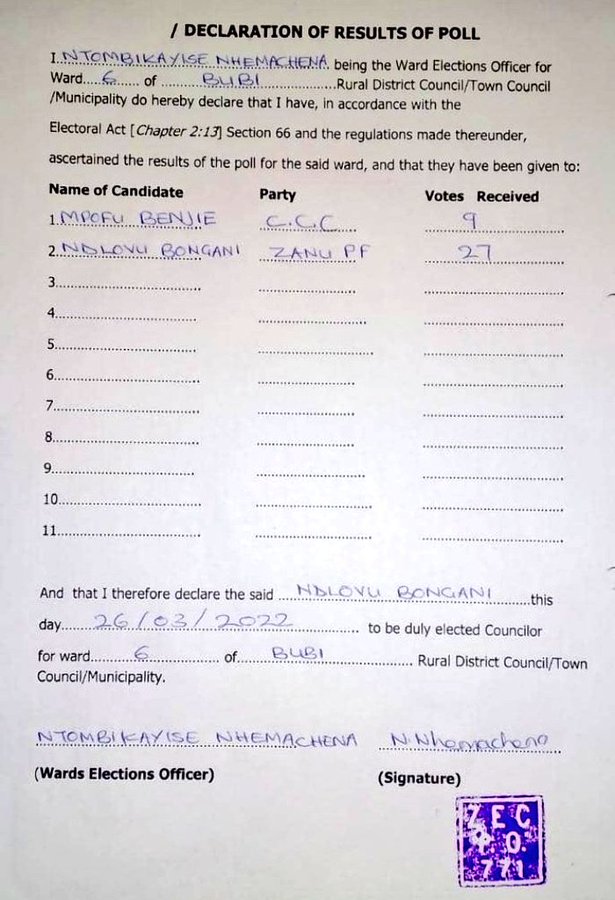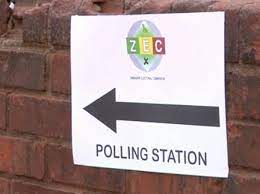The initial turnout during the March 26 by-election was described by observers as dramatically low and this was evidently seen in Ward 6 under Bubi District in Matabeleland North where only 36 people voted.
Polling in the by-elections, in which 16 political parties were contesting, opened at 7 am and were closed by 7 pm but drew one of the lowest turnouts in the country’s history.
Rains that fell on the day, could also have deterred some voters, especially in Bulawayo.
In Bubi’s Ward 6, ZANU-PF won 27 of the votes and the party’s candidate Bongani Ndlovu is now the new councillor after defeating Benjie Mpofu of the Citizens Coalition for Change (CCC) who only had six votes.

In 2018, the seat was won by Zanu PF’s Francis Maposa.
Most wards and constituencies fell vacant when opposition lawmakers were recalled by the MDC-T in a battle to control the country’s opposition space.
When the Bubi election result was posted, many questioned how many people are registered in that ward and what possibly could have happened to make others not go out and vote.
Speculation was rife that since Bubi was a resettlement area, some voters were afraid of voting ‘wrongly’ so chose to stay away in order not to lose their land while others claimed several household owners lived and voted in towns or cities.
However, analysts said the low participation in by-elections, not just in Bubi but in many constituencies across the country, suggests dwindling trust in political leaders and governance in the country.
“People are fed up of going to vote and are fatigued as they have been voting since independence with little change,” said Patrick Ndlovu.
“You may find some didn’t even know there was an election taking place.”
Another analyst Bernard Magugu noted it was worrying that an “entire” ward had only 36 people, which raised questions as to whether it should really be a ward.
“As far as I’m concerned, no election took place. There is no ward that has 36 people, who can determine the future of the whole community. That number is not representative of the whole ward,” he said.
“Who will this councillor be representing, as more people did not vote.”
Magugu added that the country’s laws were weak, as they did not provide a threshold of how many numbers one needed to be a councillor or a member of parliament.
“Even if one wins by one vote, they are sworn in but going forward the law must be tightened. Otherwise, if we have such low numbers in the next polls, it may be a waste of both state and council resources,” he said.
“It’s also a shame for the whole of Zimbabwe as it shows the international world that we are not serious about elections or the governance system in our country, which is why we are having a low turnout. Other countries may not assist us, as they will say people are despondent and have surrendered to fate.”
The commentator also warned political parties not to take it for granted when they saw thousands at their rallies as some would not even be registered or want to go and vote.
“Political parties must take people to the polling station so that they can vote and smaller parties should have taken advantage of this and organised 100 people. This, however, boils down to the ZANU-PF led government seeing that people are showing them they don’t trust the country’s electoral system. Political parties must also think of other methods of removing ZANU-PF,” Magugu said.

